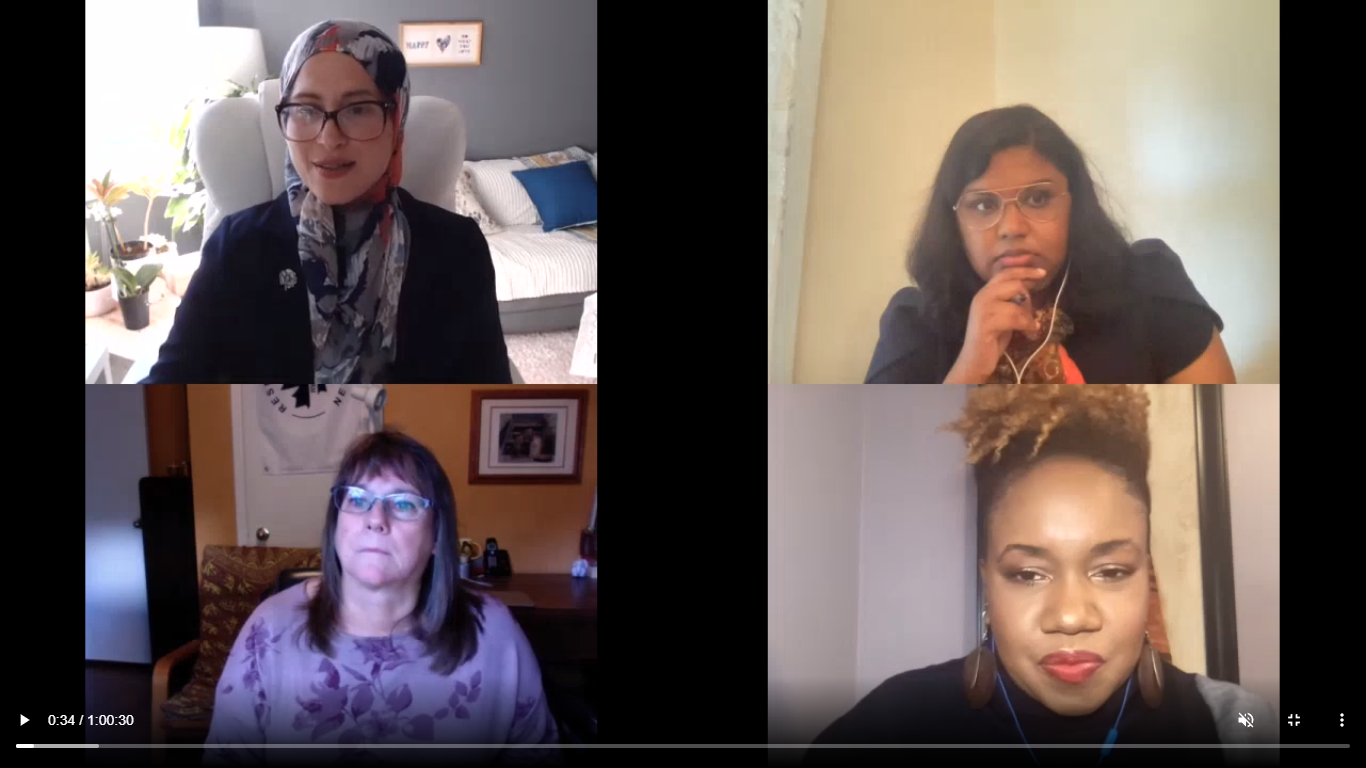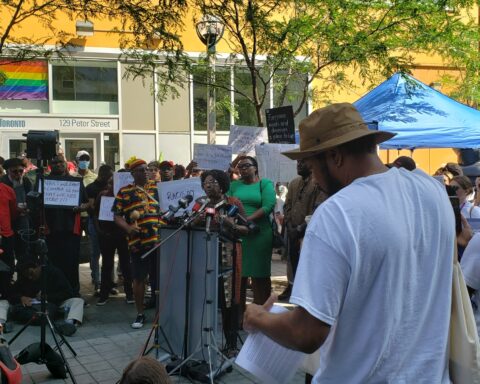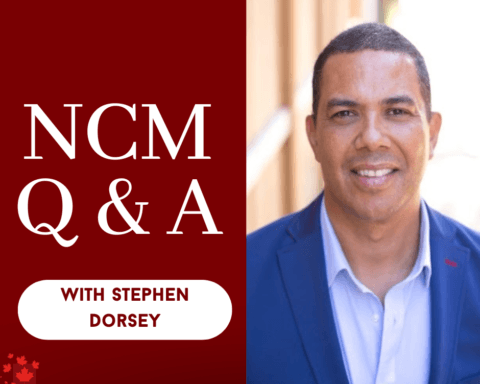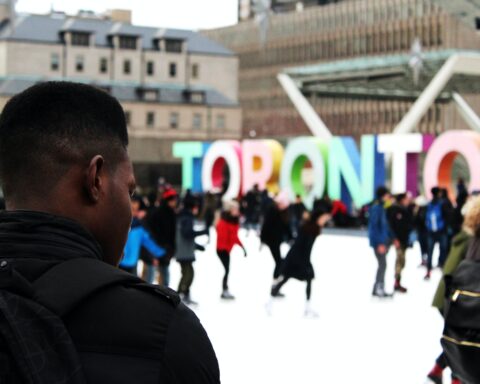Highlighting the prevalence of online hate speech and its impact on racialized communities, one of the panelists at the 4th annual Metropolis conference on multiculturalism chose to give her online presentation without video.
“The unfortunate truth is that law enforcement has not been effective. It’s very difficult to get charges laid for hate crimes under the Canadian Criminal Code,” said Elizabeth Simons, deputy director of the Canadian Anti-Hate Network, a nonprofit organization that monitors hate groups and hate crimes in Canada, on the last of the three-day event.
“Law enforcement is historically very reluctant to lay charges on any of those types of incidents and crimes which have an aggravating hate element to them.”
Statistics show the rise of hate groups as well as hate crimes and incidents against various communities and people of colour, especially those wearing visible symbols of their faith, have become alarmingly frequent in the recent past. As the all-female panel noted, a combination of anonymity offered by social media, divisive identity politics, as well as the prevalence of conspiracy theories and misinformation, has abetted hatred, with devastating consequences.
According to Dr. Barbara Perry, considered an expert on hate crime and right-wing extremism, after Donald Trump was elected president of the United States in 2017, there has been a 47 per cent increase in police-reported hate crime and a 151 per cent increase in anti-Muslim hate crimes. She said this was “unprecedented,” particularly within a “Canadian context.”
“If we saw that in any area of crime, we would be calling for a national inquiry, research into why this is happening,” she said. “But crickets. No outrage was expressed at this development.”
A recent report by Statistics Canada stated that law enforcement only reported 1,946 hate crimes in 2019, even though there were more than 200,000 self-reported hate crimes in Canada that same year, according to data released from the 2019 General Social Survey. Respondents mentioned that more than half of those incidents involved extreme violence. In 2020, the hatred has been mainly directed towards Black people as a reaction to the Black Lives Matter movement and towards Asians in the context of COVID-19.
“More Muslims have been killed in targeted hate attacks in Canada than any other G7 country in the past five years because of Islamophobia. So, this is having real impacts,” said Amira Elghawaby, director of programs and outreach at the Canadian Race Relations Foundation (CRRF).
Elghawaby said one way to tackle the issue is through the government’s proposed online legislation, which it has promised to implement within its first 100 days in office.
“Those are some of the solutions, but there’s lots more discourse and discussion to be had in communities that work to address some of these really concerning gaps and support,” she said.
Over-policing
Notably, one of the biggest barriers to reporting a hate crime has been law enforcement agencies’ definitions of a hate crime and their lack of willingness and capacity to respond to complaints. Community members therefore shy away from reporting hate crimes out of fear of being harassed and mocked by law enforcement who may not take them seriously.
According to Perry, over-policing is also an issue for a whole array of communities like Muslims, Blacks, Indigenous and LGBTQ communities who have a historically fraught relationship with law enforcement.
“In my conversations with a whole array of different communities, you get this perception of both the under-policing, and the over-policing of those communities, both of which contribute to that lack of trust,” she said. “People talk about trying to report an incident of hate crime and being talked out of it….That is a huge problem.”
Tackling online hate
The Canadian Race Relations Foundation (CRRF) and YWCA Canada recently launched their #BlockHate campaign, which aims to raise awareness of the fallout of ignoring hate speech and racism online.
“Sometimes people minimize the corrosive effect of hate speech. With this campaign we wanted to start a conversation and also humanize people who are at the receiving end of this hate,” said Anjum Sultana, national director of public policy, advocacy and strategic communications at YWCA Canada.
The session opened with a campaign video about Carla Beauvais, a Black Montreal-based columnist and social entrepreneur. Beauvais became the target of racial abuse last June after being featured in a local publication for a mobile app for Black entrepreneurs she created following the murder of George Floyd. The experience profoundly traumatized her and caused her to re-examine her sense of belonging in society.
According to Sultana, with these series of videos, the campaign has tackled different forms of hate speech online. Their next one, produced in partnership with the CRRF, will direct its focus toward anti-Asian hate, and will be out on International Human Rights Day.
Sultana hopes this call to action will inspire people to intervene when they see online hate or even if they are witness to an incident as a bystander in a real time scenario.
Hope for multiculturalism in Canada?
So, what does this rise in hate towards racialized communities do to the multicultural mosaic that is Canada?
Experts believe that as long as the systemic barriers that communities are facing aren’t addressed, the ideals of multiculturalism remain aspirational.
“Multiculturalism is important in the sense that it really strikes away from perhaps the American kind of melting pot ideology where everyone has to assimilate,” Sultana said.
“In multiculturalism, the ideal is that everyone can retain who they are…But I think we need to have an evolution of this thinking, and I think we really need to think about how not all of us are experiencing the same reality.”
Baisakhi Roy is a writer and journalist based in Oakville. Her work has been published in several Canadian media outlets including The Globe and Mail, Huffington Post Canada, Chatelaine, Broadview and CBC. Her areas of interest and expertise lie in the intersections of immigrant life and culture in Canada. She is an avid Bollywood fan and co-hosts the Hindi language podcast KhabardaarPodcast.com.





